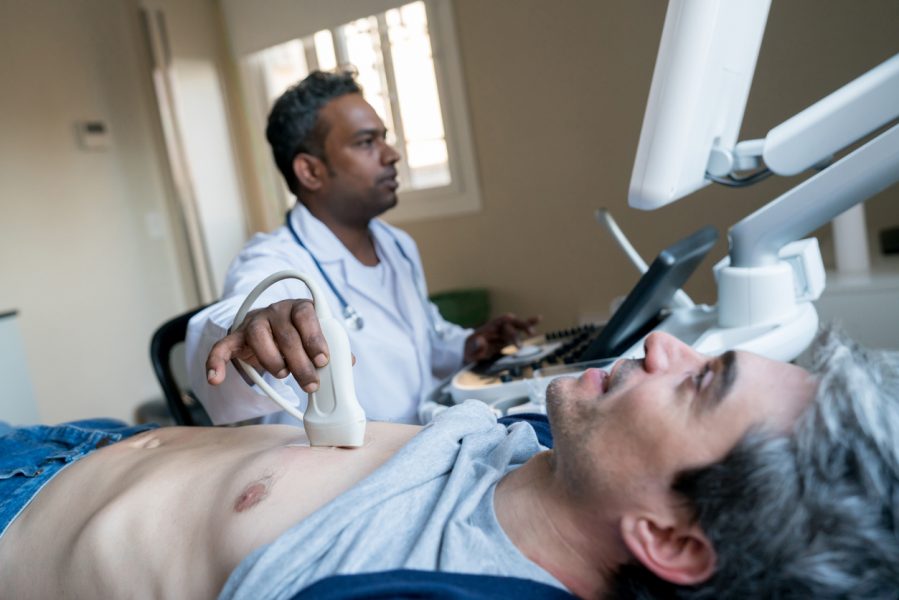
New NMC rule allows docs to deny treatment to patients with ‘abusive’ kin

A code of conduct proposed by the National Medical Commission (NMC) will now empower doctors to refuse treatment to a patient whose family are abusive and violent.
The NMC’s Ethics and Medical Registration Board has issued the rules and invited comments from public, experts, stakeholders and organisations on the National Medical Commission, Registered Medical Practitioner (Professional Conduct) Regulations 2022. The comments can be sent by June 22.
The proposed rule, which threatens to put the life of a potentially-ill person at stake, has come under criticism.
People for Better Treatment, an NGO on Monday sent a notice to the NMC opposing the provision in the draft regulation.
“We are stunned and dismayed to find that the NMC has decided to include this potentially lethal and draconian new rule in the Registered Medical Practitioner Professional Conduct Regulations 2022 without any thoughtful consideration for its dangerous and potentially fatal consequences,” the NGO said in its letter.
Section 26 of the draft rule says that Registered Medical Practitioners (RMPs) can document and report the behaviour and refuse to treat the patient whose relatives are “abusive”, “unruly”, and “violent.” The same rules apply to the patient.
The rule says that such a patient should be referred to another hospital for treatment once refused by the RMP.
“If a change of RMP is needed (for example, the patient needs a procedure done by another RMP), consent should be obtained from the patient himself or the guardian. The RMP who attends to the patient will be fully accountable for his actions and entitled to the appropriate fees,” the rule says.
Medical professionals across the country have been demanding stricter laws to safeguard them in the wake of increased attacks on doctors and nurses among other healthcare professionals, mostly by enraged relatives of patients.
Following massive protest by doctors in Kolkata in 2019 over the violence on young doctors at NRS Medical College by the relatives of a patient, the Centre in 2020, passed the Epidemic Diseases (Amendment) Act which made violence against healthcare personnel a non-bailable offence.
Many in the field, however, have called the proposal by the NMC a bit too harsh.
“The PBT has always strongly condemned any act of mob violence or physical attack on doctors. However, providing a new legal caveat for the registered physicians to refuse treatment as proposed under Section 26 is patently wrong as it is against the fundamental right to life guaranteed under Article 21 of the Constitution,” Dr Kunal Saha, the founder of People for Better Treatment, told Deccan Herald.
He says, as the draft rules does not define the term “abusive” behaviour, it falls on the personal opinion of any individual to arrive at a definition. In that case, a doctor may construe particular words or language, used by the stressed parent of an ill child, as “abusive” under the law, and deny treatment, he said.
The proposed regulations, once enforced, will replace the Medical Council (Professional Conduct, Etiquette, and Ethics) Regulations, 2022.
Several doctors agree that denying treatment to a patient is wrong and instead pitch for a strong law to check any untoward incidents against doctors.
“The government passed an Epidemic Diseases (Amendment) Act 2020 which provided acts of violence against healthcare personnel during any situation akin to current pandemic to be cognizable and non-bailable offences. The law should remain in force forever. If the NMC wants the welfare of doctors, they should work in that direction,” Sahanjanand Prasad Singh, president of Indian Medical Association (IMA) told Money Control.
Rajan Sharma, former IMA president concurred, stating that such proposals would do little to protect doctors if the Union government doesn’t come up with a dedicated legislation against attacks on doctors.
“There has to be strong laws to deal with the rising cases of violence. The regulations made by NMC should be in tandem with stringent laws from the Union home ministry,” he said.

